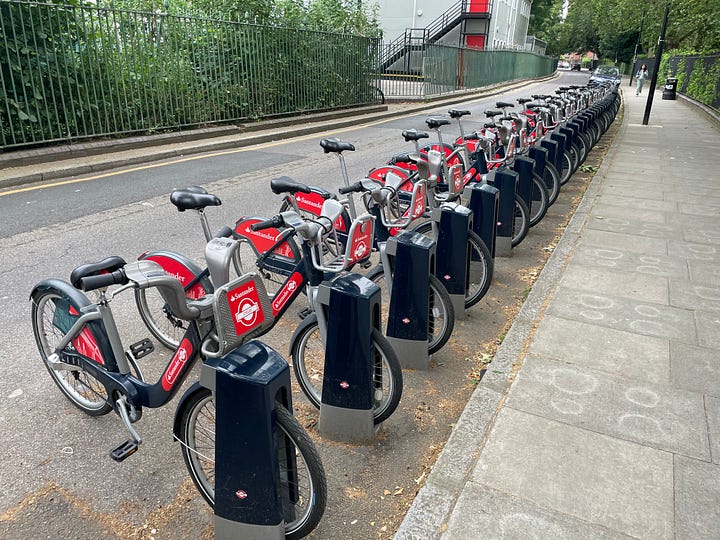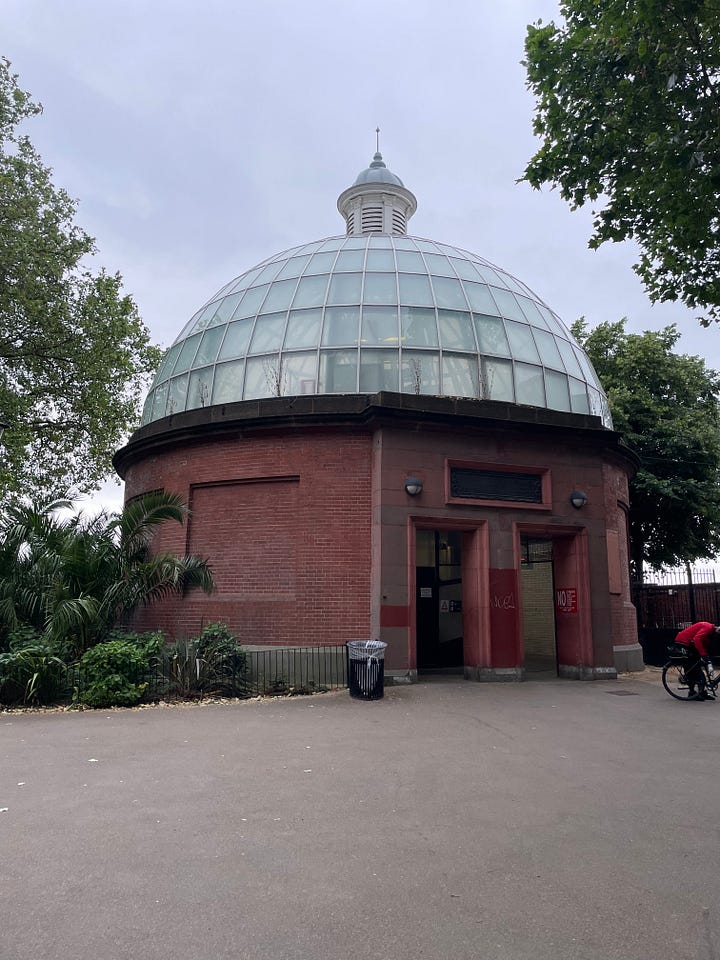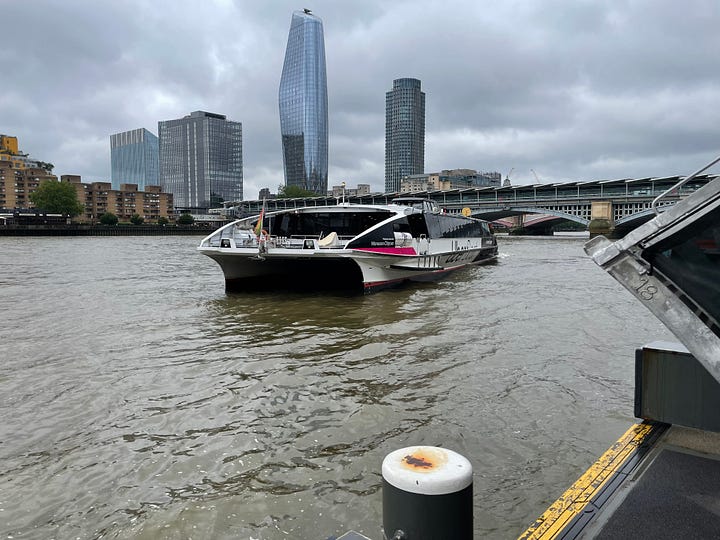That was nice - MMD#382
Good day my good friend.
That was a lovely couple of days! It was great to see some of you in Greenwich at the Transport Practitioners Meeting, and to chat about the general state of transport planning. The content of which has somewhat influenced today’s newsletter. For those of you who I saw there, it was wonderful chatting to you!
Speaking of which, as I shared on LinkedIn last night, I loved the fact that transport tech barely got a mention. Which is just as well, as the transport tech i used to get to the conference was very much old school - as shown in the below pictures. So old school in fact that the bicycle was the technology that was invented the latest (a first verified claim being in 1817 for the Laufmaschine).




Ok, if you are being pedantic, the Greenwich Foot Tunnel only opened in 1902. But I took that as being symbolic of walking, which has been around as long as homo sapiens have which is up to 750,000 years. For completeness, the first known example of sailing was to Australia around 50,000 years ago. What was the first train is long-debated, but I am using Richard Trevithick and his invention of the steam locomotive in 1803 as a reference point.
If you have any suggestions for interesting news items or bits of research to include in this newsletter, you can email me.
Mobility Camp is taking place on 29th September 2023 in Birmingham. It would be great to see you there. Get your tickets now.
James
The biggest barrier to good transport planning
At the end of Day 1 of the conference, Oli Davey of Urban Movement gave a thought-provoking talk on the biggest barrier to good transport planning, and its biggest challenge. No, its not the Department for Transport. It is this. Simply put, as transport planners we are brilliant at writing strategies and doing analysis. We are also good at writing action plans. What we are not good at is the bit between them - politicians lacking confidence, an unconvinced public, and unsure senior decision makers.
This has reflected what I have been thinking for some time. We complain (often loudly) that politicians need to be bold to make the necessary changes. But we don’t actually help them. We write reports they don’t read, strategies that are non-committal, and ask them what they want. We don’t give them the tools they need to make a decision. Now Oli gave a good example of something Urban Movement did for the London Borough of Sutton. Taking data on communities across Sutton, they identified top issues in Sutton and communities where they overlap (e.g. childhood obesity). Then they did something so simple.
They summarised this in two paragraphs. One of the issue. And one of the line to take on how the scheme tackles that issue. In plain English. Making the decision making a simple one, in terms easy understood, in a way that can be supported by decision makers. And one that is applicable everywhere. I could barely contain shouting “yes, thank you!!”
My experience as councillor has taught me one thing above all other things. Make. The. Decision. An. Easy. One. I don’t mean be manipulative, by the way. I mean explain, in very simple terms, why this is a good decision, and how it achieves their goals. Politicians have a difficult task to do, and they will appreciate it if you make their lives easy. They are not experts, and sometimes it feels like talking to a child to them. Regardless of this, make the decision a simple one, and they will make it.
Random things
These links are meant to make you think about the things that affect our world in transport, and not just think about transport itself. I hope that you enjoy them.
Phoenix Rises – Return of the Airship (London Reconnections)
Leveraging rail-based mobile energy storage to increase grid reliability in the face of climate uncertainty (Nature Energy)
Ranking London’s major rail terminals (City Monitor) James - I have had a change of heart in recent months about this. While St Pancras International is stunning, and London Bridge is great as well, Marylebone is just gorgeous.
Why Does TGV Ridership Overperform Models? (Pedestrian Observations)
The greatest tech books of all time (The Verge)
Something interesting
You may be wondering - why on EARTH has James posted a video about the US Dollar? For a very simple reason. If you like transport schemes being financed, much of that finance is leveraged against government bonds (low but consistent returns for people who buy them), and much of that is in US Dollars. So people abandoning the dollar is a big thing.
And in case you are wondering whether this is good, bad, whatever, think of this. Before World War II, the default world currency was the British Pound Sterling. Before that it was the Spanish dollar (known as ‘pieces of eight’ incidentally), and before that the Byzantine currency. So its not as if its not changed before.
If you do nothing else today, then do this
POLIS have published this excellent report on dynamic kerbside management that you should read. And also read Lambeth’s Kerbside Strategy while you are at it.


